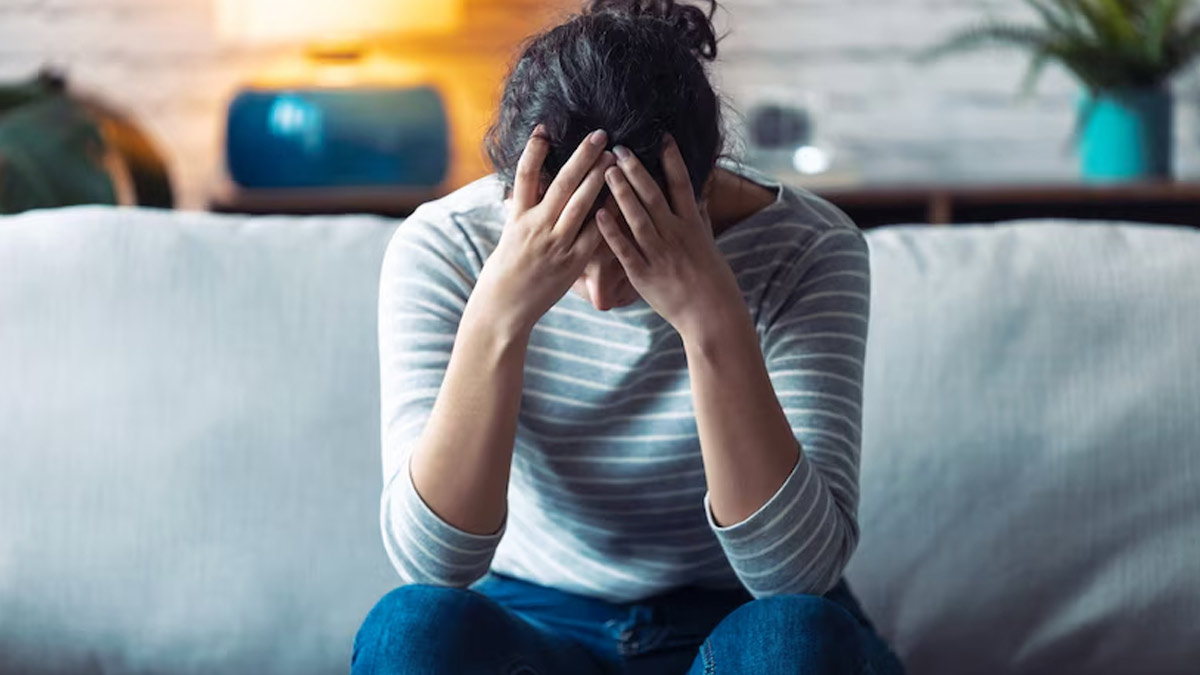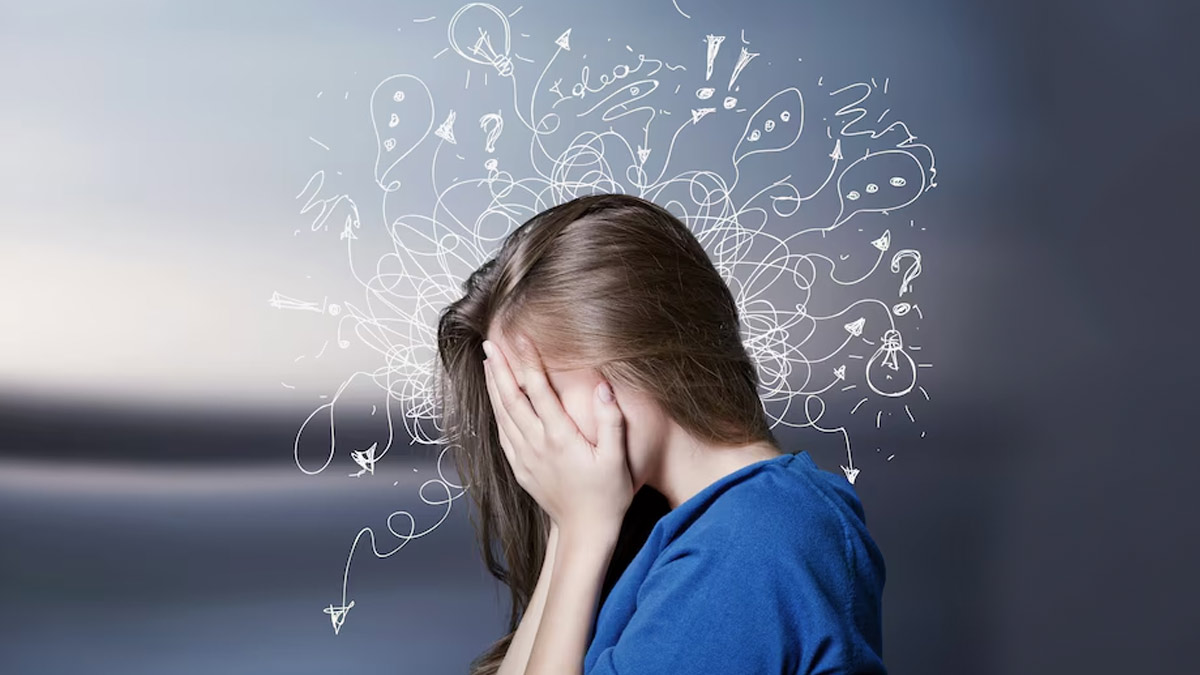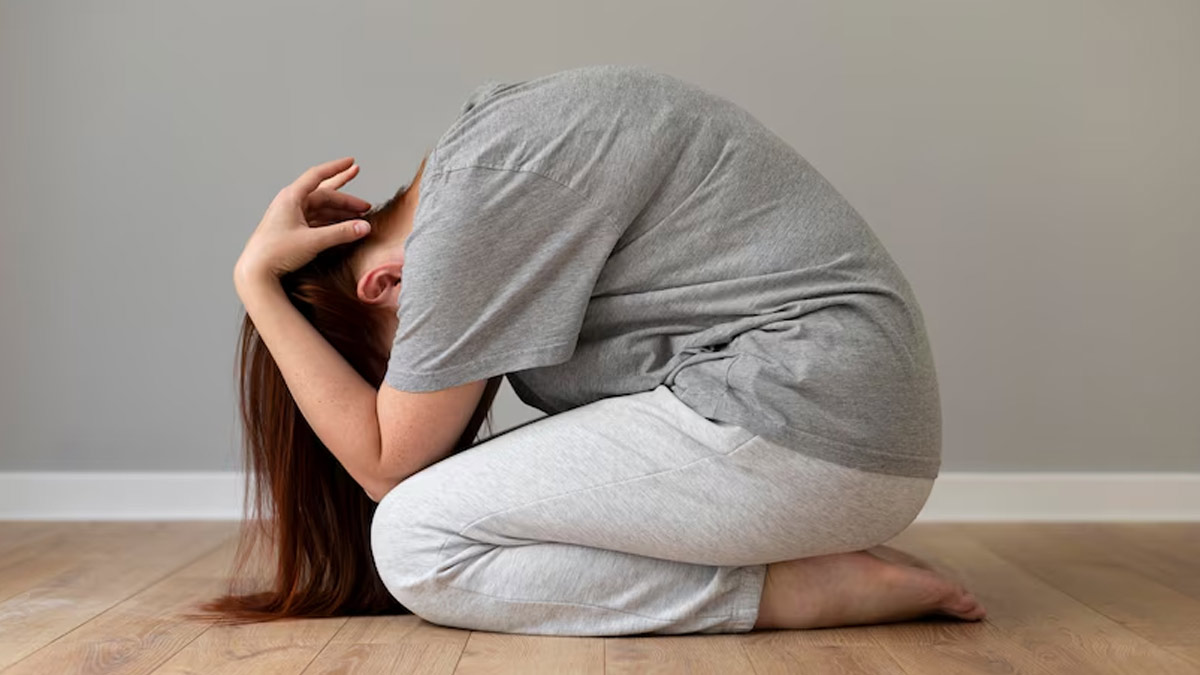
Have you ever felt your heart race before an important meeting or found yourself lying awake at night, worrying about things beyond your control? While both experiences might feel similar, they stem from different emotional responses: stress and anxiety.
Table of Content:-
CHECK YOUR
MENTAL HEALTH

You’re racing to meet a deadline, your mind is buzzing with to-do lists, and your shoulders feel tight from the tension. That’s stress at play, your body’s reaction to external pressure. Now, picture this: the deadline has passed, but the unease lingers. You’re restless, constantly second-guessing yourself, and can’t shake off a nagging sense of dread. That’s anxiety.
Although they often overlap, stress and anxiety differ in their causes, duration, and effects. By understanding these differences, you can take the first step toward managing them effectively and reclaiming your peace of mind.
To understand the major difference between the two, OnlyMyHealth team interacted with Priyanka Kapoor, Psychotherapist, Psychologist, Couple and Family Counsellor, Mumbai.
What is Stress?

Stress is a natural response to external pressures or challenges, such as work deadlines, relationship conflicts, or significant life changes. Kapoor explains, "Stress frequently results from particular circumstances or occurrences. Usually transient, it is associated with a specific situation or event and often diminishes once the stressor is resolved."
Stress tends to manifest physically and emotionally. Common symptoms include:
Physical symptoms: Headaches, muscle tension, fatigue, digestive problems, and irregular sleep patterns. These symptoms generally subside once the stressful event passes.
Emotional impact: Irritability, frustration, or a sense of urgency to solve problems. Despite feeling overwhelming at times, stress can be motivating and drive action.
For example, meeting a looming deadline might cause stress, but it also pushes you to focus and complete the task. Activities like problem-solving, exercise, or relaxation techniques such as deep breathing often help alleviate stress. Once the external challenge is addressed, stress usually resolves.
Also read: Noida Startup Fires Employees Over 'Stress' Claims: Tips to Recover from Work Stress
What is Anxiety?

Anxiety, on the other hand, is more internal and can occur without a clear external trigger. It is often characterised by feelings of unease, fear, or dread about future events or situations. Priyanka Kapoor points out, "Anxiety is more internal and frequently arises without a clear external cause. It may be associated with dread or unease about the future, often without a clear cause."
Unlike stress, anxiety is often prolonged and can persist even after the initial concern has been resolved. Common symptoms include:
Physical symptoms: Sweating, trembling, nausea, dizziness, shortness of breath, and heart palpitations. These reactions can be severe and occur without an immediate external stressor.
Emotional impact: Persistent worry, fear, or a sense of impending doom. Anxiety can severely disrupt daily activities, leading to avoidance behaviours or excessive worrying about unlikely scenarios.
For instance, someone might feel anxious about an important meeting long after thorough preparation. This lingering feeling of unease can interfere with their ability to concentrate on other tasks.
Also read: Why Does Anxiety Cause Heart Palpitations?
Key Differences Between Stress and Anxiety
Although they share similarities, the differences are notable:
Source: Stress is usually triggered by external events, while anxiety often arises internally, sometimes without a specific cause.
Duration: Stress tends to be short-term and resolves once the issue is addressed, while anxiety can be chronic and ongoing.
Intensity: Anxiety symptoms are often more severe and may include physical reactions like heart palpitations or dizziness.
Impact on life: Anxiety is more likely to disrupt daily activities and may require professional intervention, unlike stress, which is typically managed with coping techniques.

When to Seek Help
If stress becomes overwhelming or anxiety interferes with daily life, it’s important to seek support. Priyanka Kapoor advises, "Seeking professional assistance, such as therapy or medical advice, is crucial if anxiety is overpowering, chronic, or interfering with day-to-day functioning." Stress can often be managed through techniques like time management, mindfulness, and exercise. However, persistent anxiety may require long-term treatment, including therapy, medication, or structured self-care routines.
Conclusion
While stress is a temporary reaction to external challenges, anxiety is a more enduring condition often arising without a clear trigger. Understanding the differences between the two can help individuals adopt effective coping strategies and seek professional help when needed. Recognising the signs early ensures better management and improved mental health.
Also watch this video
How we keep this article up to date:
We work with experts and keep a close eye on the latest in health and wellness. Whenever there is a new research or helpful information, we update our articles with accurate and useful advice.
Current Version